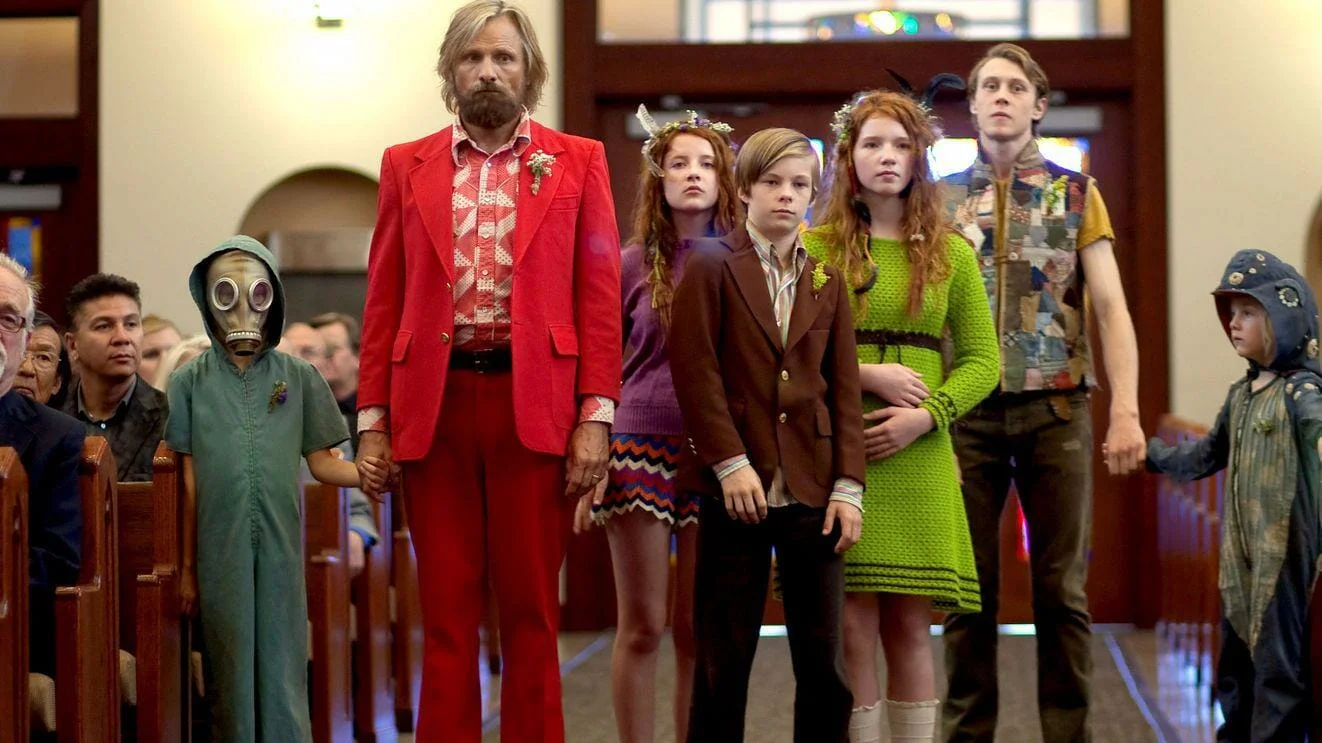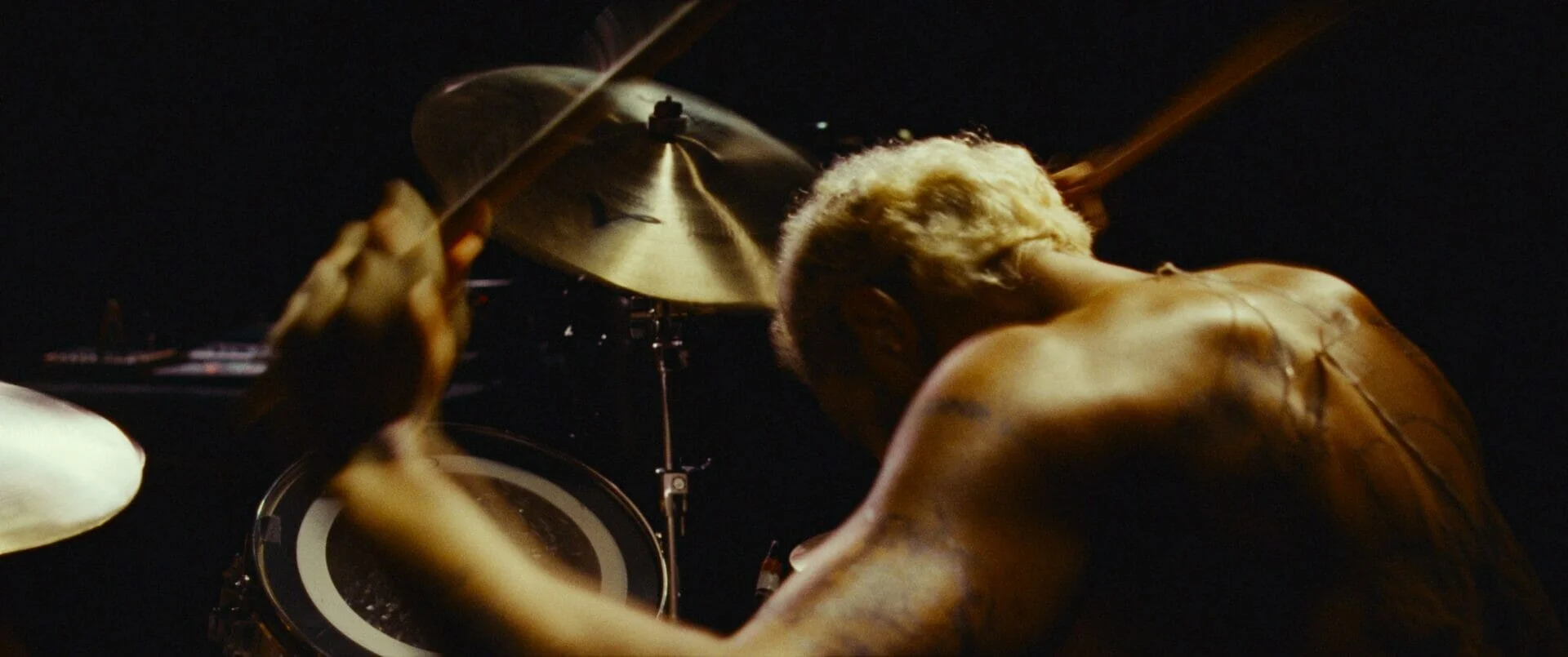
Captain Fantastic | Can a family thrive away from society?
Year
Runtime
Director
Writer
Cinematographer
Production Designer
Music by
Country
Format
Genre
Subgenre
Captain Fantastic, a comedy-drama movie written and directed by Matt Ross, premiered in 2016 at the Sundance Film Festival. It was also a candidate for several major film awards. It went on to win the prize for Best Director at The Cannes Film Festival, in the category called Un Certain Regard.
A utopian paradise on Earth
Ben (Viggo Mortensen) is a father of six children who has abandoned society to raise his offspring in the woods of Washington State. He and his family spend their lives hunting and growing their own food, almost completely isolated from other human beings and cherishing an immersive relationship with the wilderness.
Ben thinks he has built a paradise on Earth, and to have raised his children as pseudo-philosopher kings. He plans and keeps track of their physical and intellectual improvements, and thanks to his dedication and devotion, the children excel at athletics and show enviable knowledge of science and the arts. One notable passage in the film that illustrates this is a dialogue of comparative commentary between Ben and his child Kielyr on the poetic qualities and morals of Vladimir Nabokov’s controversial 1955 novel Lolita.
On the other hand, Ben appears emotionally detached from the feelings of his children, which aren’t really taken into consideration in the search for the perfect life. Soon their happiness shatters. Ben’s wife, the mother of their children, hospitalized because of bipolar disorder, kills herself. Ben and the children decide to leave on a road trip to obstruct the funeral that their grandparents, against their daughter’s will, want to hold with a traditional Christian religious ceremony.
This is the crack, the spreading abyss that allows everyone’s hidden distress to emerge. During the trip, the real feelings of Ben’s children emerge: some of them are willing to leave that lifestyle to live a regular life. Ben’s parenting methods thus confront society’s paradigm of fatherhood and start to clash head-on with his children’s desires.
A colorful and pleasant mother nature
The way in which color is used in Captain Fantastic becomes one of a series of helpful narrative tools. Bright and luminous scenery contrasts with the inner tragedy experienced by different families. Most notably, the tones of the colorful clothes of Ben’s family stand out during the funeral, packed as it is of black-clad mourners.
Scenes filmed in closed spaces are rare. The dramatic intensity that arises in human conflict echoes in images rich in the vibrant colors of nature, open spaces, and uncontaminated panoramas. In Captain Fantastic nature is challenging, but welcomes whoever wants to enter it, giving it the respect it is due: danger awaits, however, at the very point where the roots of the woods start giving way to the land that is the encroachments of modernized society.
The morals of raising children: questions left unanswered
In Captain Fantastic the theme of separation from society, usually analyzed from a lone perspective (Walden, Into the Wild), is analyzed from the point of view of a family (later Leave no Trace will follow these same steps). This expedient sparks a conversation on the internal conflicts and the hard choices that parenthood forces one to face.
Is it right to impose parents’ beliefs on children? Ben, his parents-in-law, and his sister’s family live in different ways, but they all force their lifestyle choice on their children. Captain Fantastic shows the downsides of both Ben’s parenting methods and of the traditional ones, in a narrative that embraces contradictions and invites the audience to question one’s own assumptions.
The discussion on education opens up a critique of contemporary society. The movie questions capitalism as a suitable world system in which to live and bring up children, while technology and modern lifestyles are also in front of the same jury and judge. The critique of the western way of living is harsh, both literal and symbolic. Ben, for example, prefers to celebrate Noam Chomsky day instead of Christmas.
But the story also warns of the perils of reacting to contradictions with an adamant idealism. In particular, the ability to fit into society’s safety nets is at stake. Idealism also ends up hurting those who prefer to remain in the ranks of society. In fact, such peremptory choices are interpreted as a threat and an implicit criticism of one’s way of life. Therefore, loneliness and isolation seem to await those who decide to live according to their own rules.
Tag
Buy a ☕ for Hypercritic







